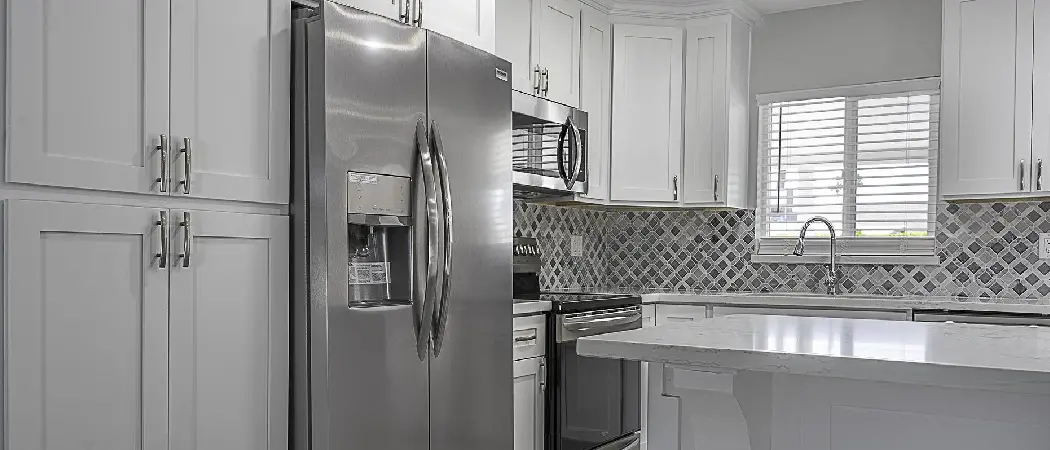Your refrigerator’s compressor is the unsung hero of the kitchen – tirelessly working to keep your perishables fresh, day and night. But what if this critical component begins to falter? How would you know, and what steps can you take to assess the problem?
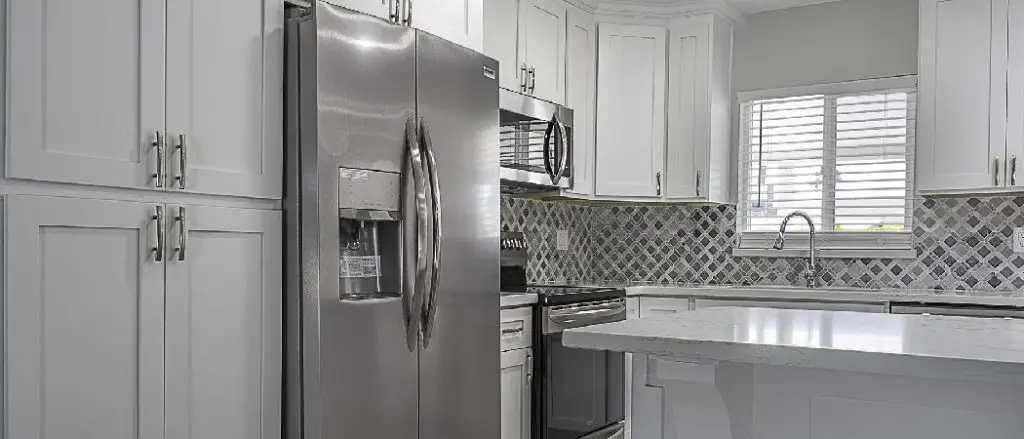
From ominous rattles to unexpected energy bills, the signs of a failing compressor are worth getting to know. In this comprehensive guide, we’ll walk you through the process of diagnosing a bad compressor, understanding the essential role it plays, and deciding whether to repair or replace it. So, keep reading this article to navigate how to tell if refrigerator compressor is bad.
The Core of Refrigeration: Understanding Your Compressor
Before we dive into diagnosis, it’s crucial to grasp the refrigerator compressor’s central role in the cooling process. Acting as the heart of the system, the compressor takes low-pressure gas and compresses it, transforming it into high-pressure gas that’s hot to the touch. As that gas flows through the condenser coils outside the refrigerator, it loses heat and becomes a liquid. From there, it flows through the expansion valve into the evaporator, where it vaporizes, absorbing heat from inside the refrigerator, and the cycle begins anew.
How to Tell if Refrigerator Compressor Is Bad: Recognizing the Red Flags
A malfunctioning compressor can manifest in various symptoms, indicating a range of potential issues. Here are some common signs to alert you that the compressor might be on its last legs.
Unusual Noises
Pay attention to any out-of-the-ordinary sounds, such as clicking, buzzing, or rattling. While some noise during operation is normal, consistent or new sounds could spell trouble.
Excessive Heat
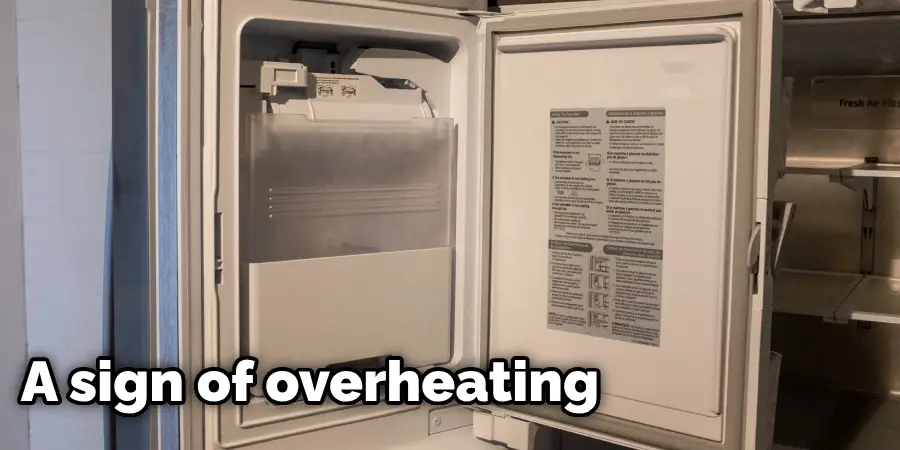
A compressor that is exceptionally hot to the touch, especially when the refrigerator is not running, maybe a sign of overheating or an inefficient cooling process.
Inconsistent Cooling
Suppose your refrigerator can’t seem to maintain a steady cool temperature. In that case, it may be due to a compressor that isn’t cycling on and off properly or one that isn’t capable of compressing the refrigerant efficiently.
Increased Energy Consumption
An unexplained rise in your electricity bill can often be traced back to a refrigerator compressor that’s working harder than it should be due to mechanical or electrical issues.
These are the signs to unveil the enigma about how to tell if refrigerator compressor is bad, that bothered your mind.
Step-by-Step Diagnosis: Assessing Compressor Health
Diving deeper into the diagnosis of a failing compressor requires a methodical approach. Here’s how to troubleshoot the issue like a pro.
Check for Power Supply Issues
Before suspecting the worst, ensure that your refrigerator is receiving power. Examine the power cord for damage, check the outlet with another device, and verify that the circuit breaker isn’t tripped.
Listen for Abnormal Sounds
Periodically stop and listen to your refrigerator. Unusual sounds can be your early warning system. However, if your unit is in a noisy area, you may need to do this at quiet times, like at night.
Measure Temperature Differentials
Using a thermometer, place a cup of water in different sections of the refrigerator and leave it for a few hours to ensure that cooling is uniform.
Do Electrical Tests
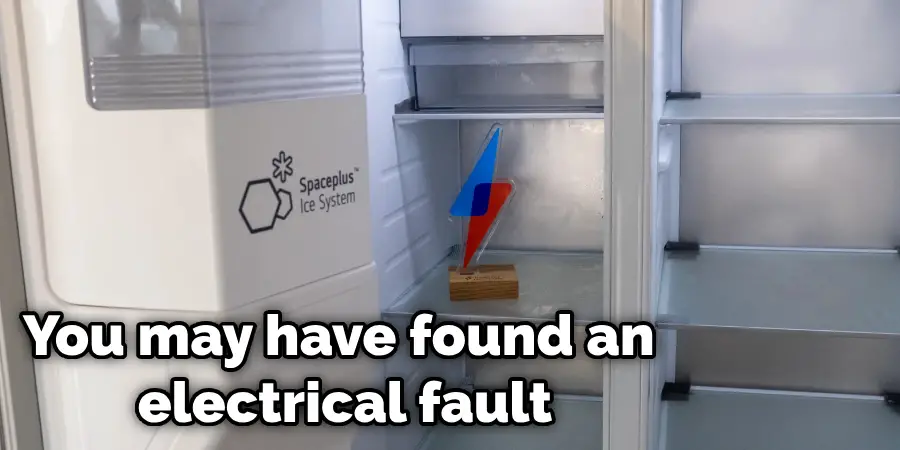
With the power off, use an ohmmeter to measure the resistance of the compressor terminals. If the readings are outside the manufacturer’s specifications, you may have found an electrical fault.
Zeroing In: Common Causes of Compressor Failure
Why do compressors fail, and how can you prevent it? Here are some key culprits behind compressor issues.
Lack of Maintenance
Refrigerator maintenance, particularly ensuring adequate airflow to the compressor through clean condenser coils, is a simple but critical task to protect against failure.
Overworking the Compressor
Overfilling your refrigerator, setting the temperature too low, or leaving the door open are common ways to make your compressor work harder than necessary, shortening its lifespan.
Electrical Issues
Voltage fluctuations, such as those from storms or faulty wiring, can damage the compressor’s motor or the start capacitor, both integral parts of its operation.
Refrigerant Leaks
A leak in the refrigeration system not only compromises cooling efficiency but also may lead to a lack of the lubricant necessary for the compressor to run smoothly.
Troubleshooting Tips: Repairing Tips
Fixing Electrical Issues
Electrical problems with a compressor aren’t for the inexperienced DIYer, and often you may need to replace the entire unit. However, replacing components like start relays or capacitors can be done by following manufacturer instructions.
Repairing Refrigerant Leaks
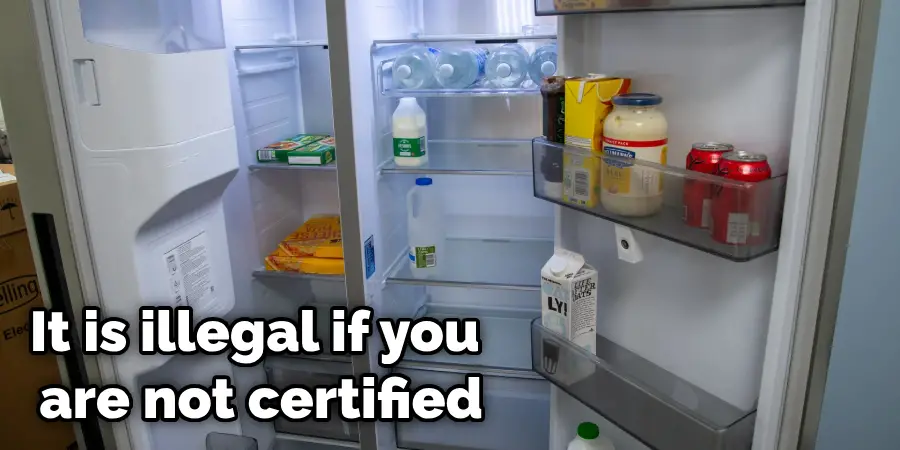
If your diagnosis identifies a refrigerant leak, it’s crucial to call in a professional repair service to handle it. Attempting to fix leaks yourself or adding refrigerant can result in further damage, and it is illegal if you are not certified.
Repairing Clogs and Blockages
Blockages in the refrigeration system can be caused by dirt, debris, or even a stuck valve. These issues may be fixable through cleaning or replacing affected parts.
Repairing Mechanical Issues
If the diagnosis points to a mechanical failure, such as a faulty motor or valve, it’s best to seek professional help. Attempting to repair these issues yourself can be dangerous and may lead to further damage.
Knowing When It’s Time for Replacement
While repairs may be possible in some cases, there are times when a failing compressor is beyond saving. Here are some signs that it’s time to replace your refrigerator compressor.
Age of the Refrigerator
Just like any other appliance, refrigerators have a limited lifespan. If your compressor is nearing or past its expected lifespan, it may be best to replace rather than repair it.
Cost of Repair Versus Replacement
In some cases, the cost of repairing a failing compressor may be more than the cost of a new refrigerator. It’s essential to weigh the repair costs against purchasing a new unit.
Persistent Issues
If you’ve already had multiple repairs done on your refrigerator, and the compressor continues to fail, it may be time to invest in a new appliance.
Availability of Replacement Parts
For newer models or particularly robust refrigerators, a compressor replacement may be a viable option, given the relative ease of finding and fitting a new unit.
Maintenance and Beyond: Keeping Your Compressor Healthy
The best way to handle a bad compressor is to avoid it in the first place with regular maintenance. There are a few simple things you can do to extend the life of your refrigerator compressor.
Clean Condenser Coils Regularly
As mentioned earlier, condenser coils play a crucial role in keeping your fridge running efficiently. Make sure to clean them regularly to prevent dust and debris build-up that could lead to overheating.
Monitor Temperature Settings
Setting your refrigerator at an appropriate temperature not only keeps your food fresh longer but also prevents the compressor from working harder than necessary.
Don’t Overfill or Leave the Door Open
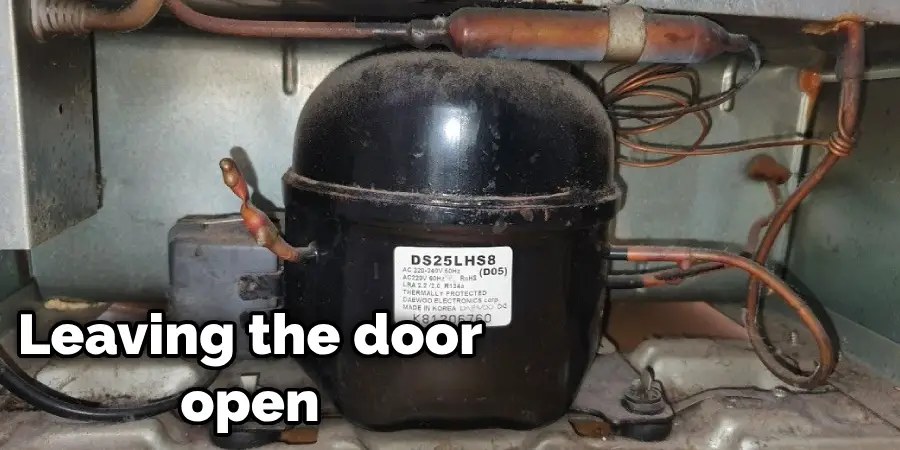
Try to keep your refrigerator at optimal capacity and avoid overcrowding. Leaving the door open for extended periods can also put unnecessary strain on your compressor.
Invest in a Surge Protector
Protecting against voltage fluctuations is an easy way to safeguard your compressor. Consider investing in a surge protector to avoid electrical issues.
Debunking Myths: Common Misconceptions about Compressor Failure
There are several myths that surround the failure of refrigerator compressors, leading to confusion and even poor maintenance practices. Here are some common misconceptions that need to be addressed.
Misconception 1: Compressors Fail Purely Due to Age
While age can be a factor, many compressors fail prematurely due to neglect and poor maintenance. With proper care, a compressor can outlast its expected lifespan.
Misconception 2: A Noisy Compressor Indicates Impending Failure
Not all noises are signs of failure; some may be typical operational sounds. It’s essential to understand the difference between normal operations versus an actual malfunction.
Misconception 3: Lowering Temperature Settings Boosts Efficiency
Contrary to popular belief, setting the temperature too low can cause the compressor to overwork and wear out sooner.
Misconception 4: Only Professionals Can Maintain Refrigerator Compressors
Basic maintenance, such as cleaning condenser coils and monitoring your refrigerator’s temperature, can be done by homeowners to prevent potential issues.
Misconception 5: If It’s Not Broken, Don’t Fix It
Waiting for a complete failure before servicing your refrigerator can result in more significant damage and higher repair costs. Preventive maintenance is key to compressor longevity.
Understanding and dispelling these misconceptions can save you time and money, and ensure your refrigerator functions efficiently for years to come.
Tips for Troubleshooting Other Common Refrigerator Issues
Water Leaks
If you notice water pooling around your refrigerator, it could be a sign of a clogged defrost drain or damaged water line. Check for blockages and replace any damaged parts.
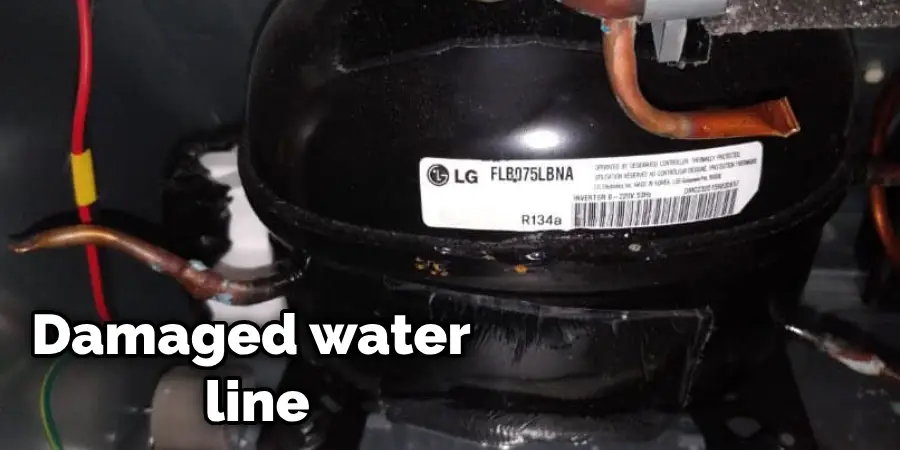
Excessive Frost Buildup
Frost buildup in the freezer can indicate a problem with the defrost system. Check and clean the evaporator coils, thermostat, and other components to ensure they are functioning correctly.
Strange Noises
Unusual noises coming from your refrigerator, such as buzzing or grinding sounds, could be a sign of a failing compressor or other mechanical issue. It’s best to have it checked and repaired by a professional.
Environmental Impact of a Failing Compressor
A failing compressor not only impacts the efficiency of a refrigerator but also has broader environmental consequences. Old compressors that are not functioning properly may lead to increased energy consumption, as the refrigerator works harder to maintain the desired temperature. This excess energy usage contributes to higher greenhouse gas emissions, which are a significant factor in climate change. Furthermore, refrigerant leaks from damaged compressors can release HFCs (hydrofluorocarbons), potent greenhouse gases, into the atmosphere, exacerbating global warming.
The Importance of Proper Disposal or Recycling
Proper disposal or recycling of old refrigerators is critical to minimize environmental damage. Refrigerators contain refrigerants and insulating foams that can release ozone-depleting substances and potent greenhouse gases if disposed of improperly. By responsibly recycling refrigerators, harmful substances are safely removed and disposed of, and valuable materials like metals can be recovered for reuse. Many regions have specific regulations and programs in place to ensure eco-friendly disposal of appliances, which helps reduce the ecological impact and encourages sustainable practices.
Conclusion
In conclusion, understanding the intricacies of refrigerator compressor issues is crucial for maintaining an efficient and long-lasting appliance. Whether you opt for repairing specific components, decide that a full replacement is necessary, or choose to conduct regular maintenance to extend the life of your refrigerator, each approach can contribute to optimizing your refrigerator’s performance. Notably, we must also be aware of the environmental footprint associated with the disposal and recycling of old units, ensuring we take responsible actions to mitigate harm to our planet. Always prioritize safety and, when in doubt, consult with a professional to keep your refrigerator – and the environment – in peak condition. Thanks for reading this article about how to tell if refrigerator compressor is bad.

